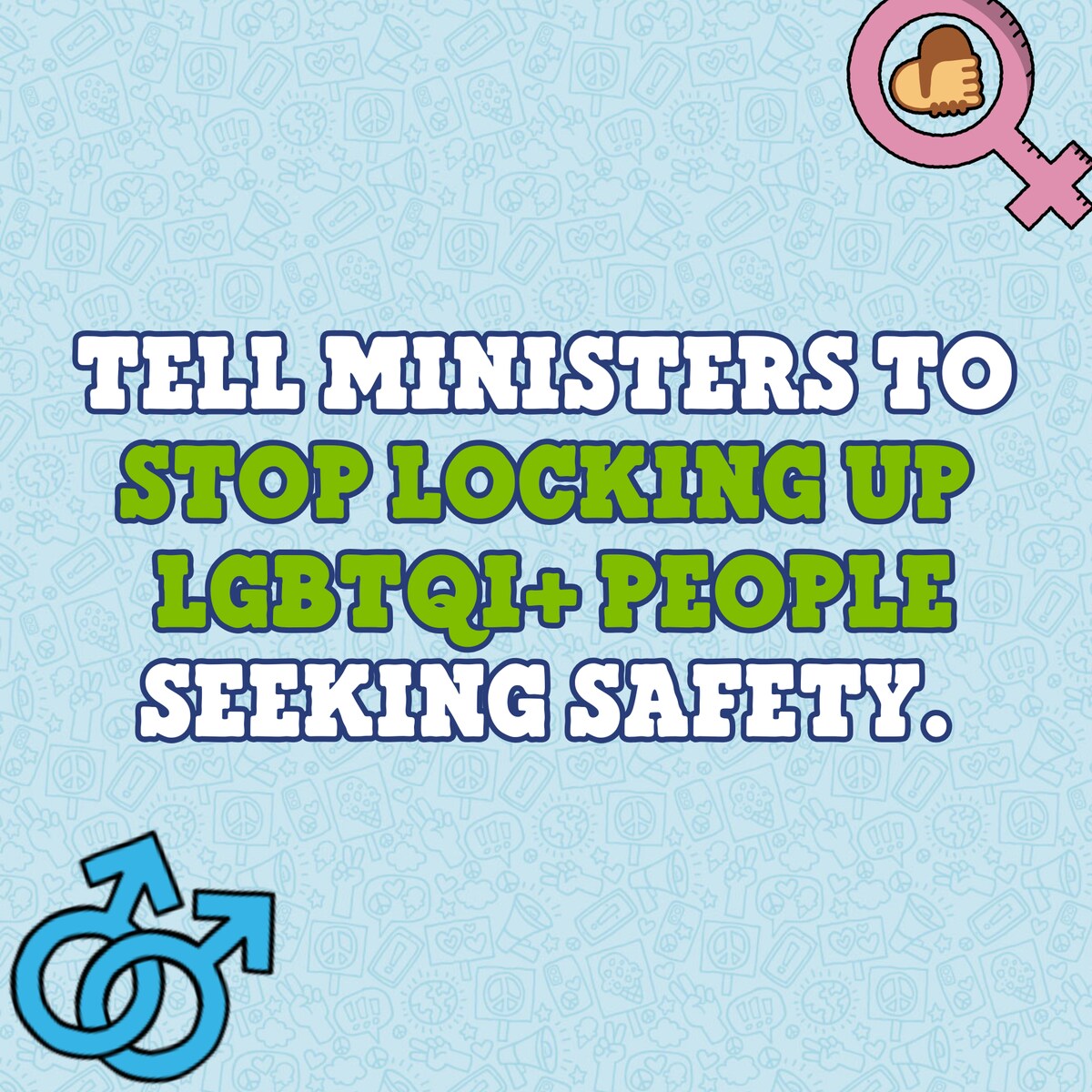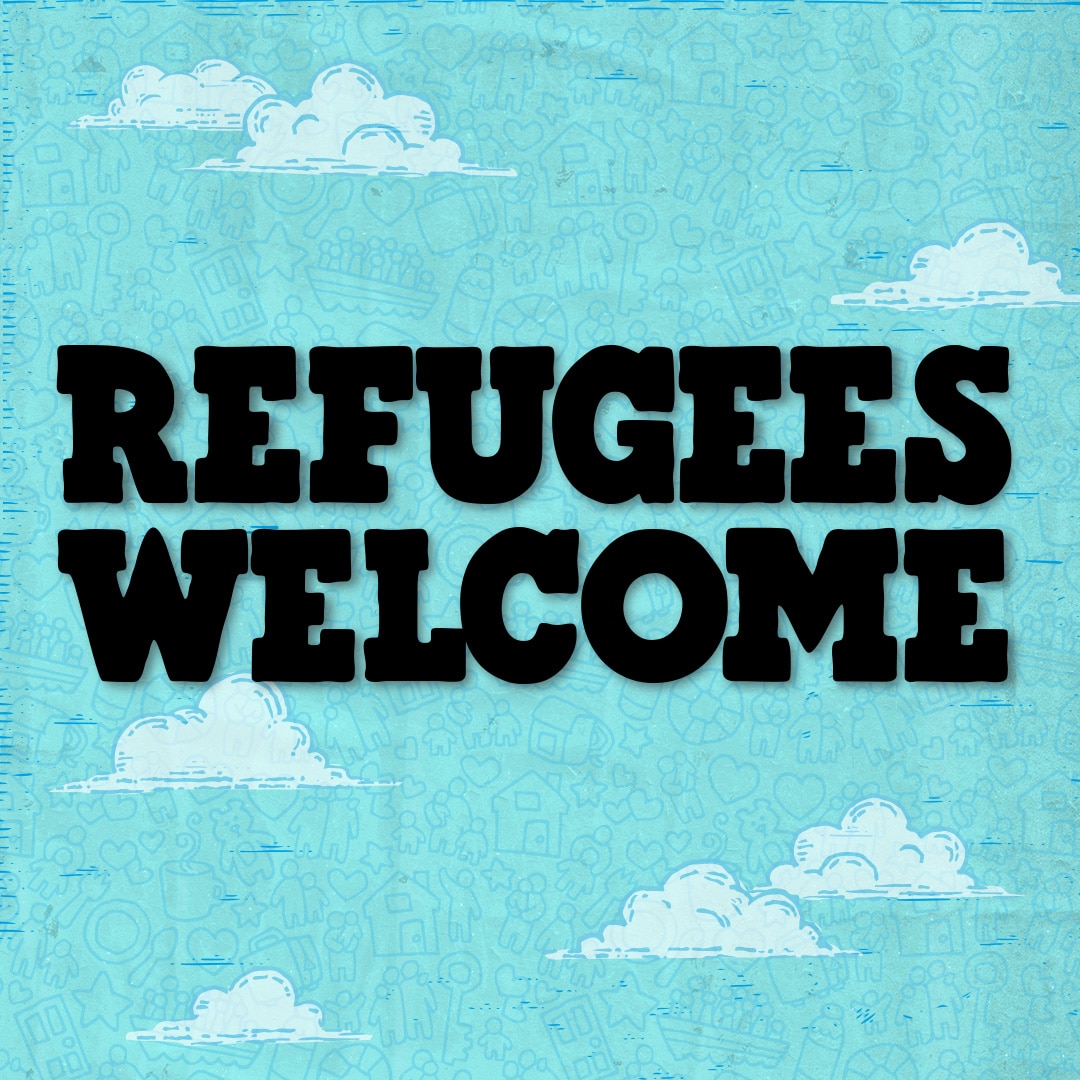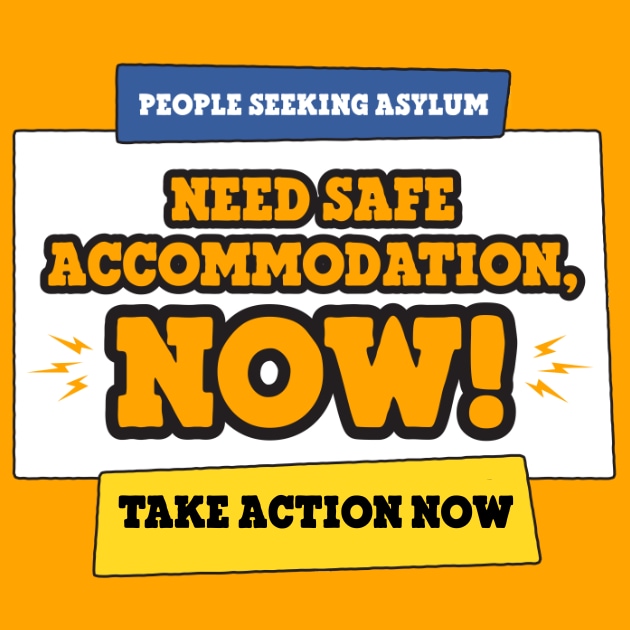
Now more than ever, we must protect the rights and humanity of LGBTQI+ people.
The Government is reviewing its policies on keeping people safe in detention RIGHT NOW. This is our chance to ensure LGBTQI+ people are protected.
Join us and our friends at Rainbow Migration in calling for an end to the inhumane treatment of LGBTQI+ people seeking asylum, by sending an email to Yvette Cooper and Angela Eagle.
FAQs
-
Immigration detention is the Government’s system for locking up people who are going through the immigration system. It is highly controversial and is notorious for its lack of basic rights, lack of safeguards, and for the terrible conditions people are kept in.
People are held in immigration detention centres, which are like prisons, with cells, walls, guards and barbed wire. The conditions have been described by people held there, NGOs, and, even official reports, as “inhumane” and “unsanitary”. A 2019 report from MPs on the home affairs committee warned there are "serious problems" in almost every part of the detention system, and nothing has changed since.
-
Around 20,000 people are locked up in immigration detention every year.
The people being detained are going through the immigration system in some way. Some may have called the UK home for all or most of their lives, as with the Windrush Generation, who were detained and told they had no right to be in the UK when in fact they did. Over half of people have claimed asylum in the UK at some point, and many have escaped torture, violence, war, LGBTQI+ persecution, or human trafficking.
-
One of the most controversial things about the UK’s system of immigration detention is that there is no statutory time limit on how long someone can be held for – it’s indefinite. Meaning that people are held for weeks, months or years and during that time have no idea when they may be released. More than a third of people are held for over a month. We are the only country in Europe that has no statutory time limit on detention.
-
Some people are detained on arrival to the UK or when they claim asylum. Others can be detained when they try and renew their visa, having lived here for several years.
People are also taken from their communities in surprise raids by Home Office officials or don’t return from routine appointments at the Home Office. This practice leads to fear and distress for individuals who may never even be detained.
-
One of the most controversial things about the UK’s system of immigration detention is that there is no time limit on how long someone can be held for – it’s indefinite. Meaning that people are held for weeks, months or years and during that time have no idea when they may be released. Around one third of people are held for over a month. We are the only country in Europe that does this.
-
Around 20,000 people are detained in the UK every year. The seven detention centres in the UK typically hold between 1,800 and 3,500 people at any one time.
Whilst the number of people in detention dropped during the height of the pandemic, more recently the numbers have been rising again.
-
At Ben & Jerry’s, our guiding principles drive us to advance equality, opportunity and justice for marginalised communities all over the globe. For 40 years we’ve campaigned for a fairer world for all, whether that’s on LGBTQ rights, racial justice, or working to protect and advance the rights of people seeking a safe place to call home.
We believe that the UK’s use of immigration detention is unjust and inhumane and when we see something that’s wrong, we can’t be silent. We must speak out alongside those affected by inequality and fight for justice.
-
We want to see an end to immigration detention as it is unjust and inhumane. We want to see an immigration and asylum system rooted in dignity, justice and compassion which puts humanity first.
People going through the immigration system usually live in the community – and we want this to continue, but without the threat of inhumane detention hanging over them.
-
Whilst over half of people detained have claimed asylum in the UK at some point, regardless of their reason for being here, we believe that everyone should be treated with dignity and respect. We are campaigning for the end of inhumane detention for all people.
-
Immigration detention is completely separate from the criminal justice system. Immigration detention is not for the protection of the public and is not for punishment in any form.
Some of those detained may have been through the criminal justice system, but would always have finished their sentence first – meaning they are suitable for release and would be free if they had a British passport. In these cases, immigration detention is an unjust double punishment.
In addition, many survivors of human trafficking end up in immigration detention after serving prison sentences for crimes they have been forced into during their exploitation – they need support and protection not more detention.
Regardless of where a person is from and their background, all people should be treated with dignity and respect.
-
Alongside our friends at Rainbow Migration, we’re asking Yvette Cooper and Angela Eagle to help in ending the immigration detention of LGBTQI+ people. As the Government is reviewing its policies on keeping people safe in detention, it is also denying the experiences of LGBTQI+ people. We call for the dangers that LGBTQI+ people face in detention to be acknowledged and to ensure they are protected.
-
Immigration cases are most often resolved while people are living in the community and there are many successful schemes designed to support people living in the community that not only are humane but also lead to more successful outcomes for the immigration system.
-
Being held in immigration detention is traumatic. People can only count the days, never knowing when they may leave the detention centres or see their families again. People in detention have been known to suffer serious mental health problems and experience suicide attempts and self- harm. For survivors of torture or victims of human trafficking, without access to community support and safeguards, there’s an additional risk to people’s physical and mental health.
People detained are known to have been subjected to disgraceful physical and verbal abuse by staff. After the detention is over, the experience causes severe emotional distress several years later.
Even if you have never been detained, the fear of detention causes its own kind of trauma.
Sweeten Up Your Inbox!
Subscribe now and we'll make sure you get the inside scoop on Ben & Jerry's fun and flavours! It's like dessert for your inbox, and you're going to want seconds.


